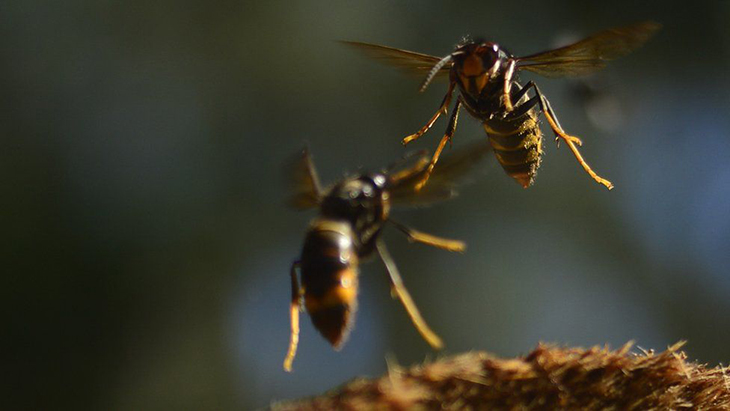
New research has shed light on the remarkable combat abilities of bumblebees when confronted by Asian hornets, as disclosed by recent findings. When under attack, buff-tailed bumblebees employ a sophisticated defensive strategy: they swiftly drop to the ground, taking the attacking hornets down with them. This unexpected tactic leaves the hornets disoriented and unable to maintain their grip, creating an opportunity for the bee to counterattack. In some instances, the bee even elevates its sting, engaging in direct combat until the hornet retreats. Astonishingly, scientists at the University of Exeter observed 120 such attacks, all following the same pattern, with the bee emerging victorious in each encounter.
This research gains significant importance due to the context of the invasive Asian hornets, also referred to as yellow-legged hornets. These aggressive pests have spread extensively across mainland Europe and parts of East Asia, and alarmingly, they have been recently identified in the United States. Furthermore, sightings of these hornets in the UK and mainland Europe have reached unprecedented levels this year. This concerning trend has prompted widespread concern, particularly among those passionate about preserving pollinators like bees.
The discovery of the bumblebees’ sophisticated defense mechanisms not only underscores the incredible adaptability of these insects but also provides a glimmer of hope in the face of the growing threat posed by invasive species. As humans continue to grapple with the challenges posed by these aggressive hornets, understanding the natural strategies employed by native species could prove invaluable in developing effective methods to protect vital pollinators and maintain ecological balance.
“With honey bees, the hornets do something called ‘hawking’—hovering outside the bees’ nest and attacking returning foragers as they fly past,” said Dr. Thomas O’Shea-Wheller at the University of Exeter.
“(But) we recorded hornets doing the same thing to bumblebees, but with the surprising difference that in our observations, they were entirely unsuccessful.”
“Although the attacks we witnessed at colony entrances were unsuccessful, defending against such attacks is likely energetically costly,” Dr. O-Shea-Wheller shared. Her team published the study they made in Communications Biology. “And when hornet abundance is high, this could be a major problem for bees out foraging.”
“Hornets also consume nectar from flowers, meaning they compete directly with bees for food and harass them at flower patches.”
The team strategically introduced commercially bred colonies of buff-tailed bumblebees (Bombus terrestris) into 12 different sites across the province of Pontevedra, Spain. These locations were chosen to encompass a range of Asian hornet densities.
What are your thoughts? Please comment below and share this news!
True Activist / Report a typo


